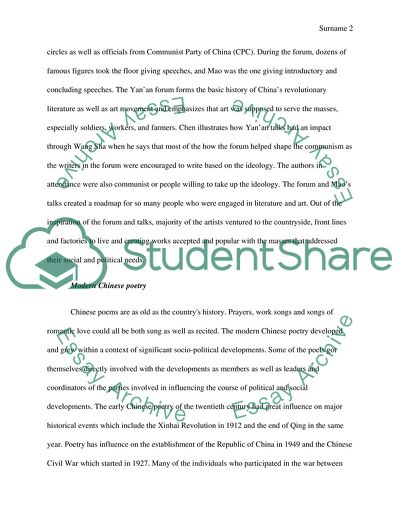Cite this document
(Role of Literature and the Arts in Twentieth-Century China Essay Example | Topics and Well Written Essays - 2250 words, n.d.)
Role of Literature and the Arts in Twentieth-Century China Essay Example | Topics and Well Written Essays - 2250 words. https://studentshare.org/history/1874651-chinese-history
Role of Literature and the Arts in Twentieth-Century China Essay Example | Topics and Well Written Essays - 2250 words. https://studentshare.org/history/1874651-chinese-history
(Role of Literature and the Arts in Twentieth-Century China Essay Example | Topics and Well Written Essays - 2250 Words)
Role of Literature and the Arts in Twentieth-Century China Essay Example | Topics and Well Written Essays - 2250 Words. https://studentshare.org/history/1874651-chinese-history.
Role of Literature and the Arts in Twentieth-Century China Essay Example | Topics and Well Written Essays - 2250 Words. https://studentshare.org/history/1874651-chinese-history.
“Role of Literature and the Arts in Twentieth-Century China Essay Example | Topics and Well Written Essays - 2250 Words”. https://studentshare.org/history/1874651-chinese-history.


